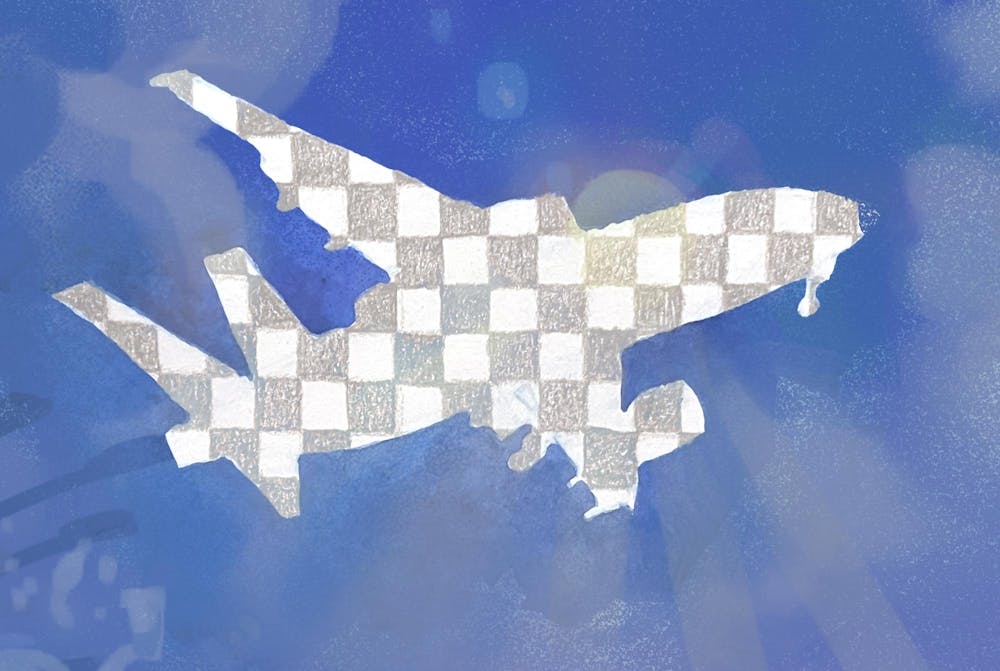Faculty and graduate students are taking stock after Brown announced a freeze on all nonessential travel amid threats to federal funding.
In a March 13 Today@Brown announcement, Provost Francis Doyle and Executive Vice President for Finance and Administration Sarah Latham announced a ban on nonessential travel, effective immediately through the end of the fiscal year. Travel constitutes “an area with significant unrestricted expenses across Brown” and is only deemed essential if it is contractually required, lacks virtual alternatives or is necessary for core academic and research operations.
The University funds faculty, undergraduate and graduate student travel for research, conference attendance and other activities related to the University’s mission.
Both Dean of the Faculty Leah VanWey and Graduate School Executive Dean of Administration and Finance Ethan Bernstein told The Herald that the University continues to fund essential travel for career development and degree completion. VanWey noted that she has not yet denied faculty requests for travel since the freeze.
Graduate Labor Organization organizer Maria Arievitch GS, a sociology PhD student, said that many graduate students rely on travel to conduct research for their dissertations.
By preemptively restricting funding prior to any formal cancelation of funds by the federal government, “they’re directly undermining the core work of grads,” she said.
“I think that undermines their stated goal of expanding as a world class research institution,” she added.
The Graduate School provides funding for conference travel and research activities through four application-based programs. Each academic year, PhD and MFA students can receive up to $700 for conference travel and up to two $1,000 travel grants to conduct research.
The Graduate School’s travel awards funded Jasper Cattell’s GS archival research for his masters thesis. Now, Cattell, a sociology PhD student, said that the travel freeze is impacting his dissertation planning.
“I don’t want to start planning something and then realize that I can’t pay for it,” he said.
Cattell also mentioned that virtual alternatives may be of worse quality and cannot replicate in-person research.
“I might be able to get all of the documents digitally,” he said, “but that is a much more impoverished research experience that doesn’t lead to as rich a final outcome as actually being able to go do the archival work.”
Bernstein wrote in an email to The Herald that the Graduate School has shared guidance on travel funding to PhD and MFA students.
“The Graduate School recognizes the important role of conferences and research travel for early-career scholars,” the guidance reads. “We therefore will continue to provide funding for PhD and MFA student travel when it is essential for your progress toward degree completion and there is no viable virtual alternative.”
For faculty, travel funding comes from a broader variety of sources and is unlikely to be significantly affected, VanWey explained. She added that most faculty travel already falls under the category of “essential travel.”
Faculty often travel to attend conferences to network, “catch up on the latest research,” conduct field interviews, collect samples or “make connections,” VanWey said.
“There are a variety of internal sources that people use that come either from general University appropriations or come from endowment funds,” VanWey said. “Travel from endowment funds has been limited a little bit, and travel from University appropriations has been limited a little bit.”
VanWey has attended the same social demography conference every year since 1996, except during the COVID-19 pandemic. But this year, she said she had to cancel her travel plans.
“I wanted to catch up on research and catch up with people who I’ve networked with — and that’s not essential travel,” VanWey said. “I have a lot of colleagues that are presenting papers at these conferences, and that’s absolutely essential”
But VanWey expressed concern over the effect of the freeze on junior faculty, who face an eight-year timeline to build a body of research to use when seeking tenured positions.
Networking, data collection and paper presentations are “much more important” for these faculty members because they have yet to form professional reputations, she added.
“We’ve been talking to department chairs and talking to faculty about the importance of promoting travel for junior faculty,” she said.
VanWey said the funding freeze is helping protect “the core activities of the University.”
“So when we say ‘nonessential travel,’ it doesn’t mean no travel.”

Ethan Schenker is a university news editor covering staff and student labor. He is from Bethesda, MD, and plans to study International and Public Affairs and Economics. In his free time, he enjoys playing piano and clicking on New York Times notifications.





